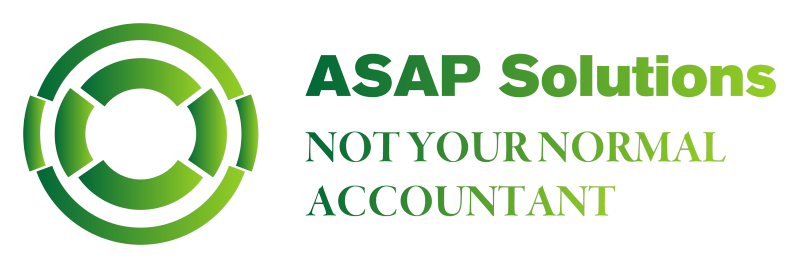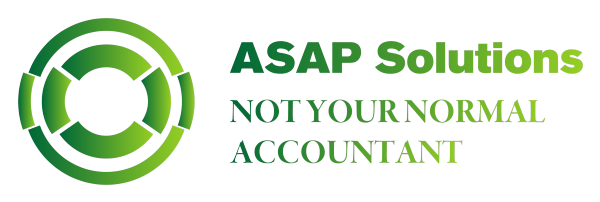When we talk about Cash Flow, we are talking about the money coming in and going out of your Business.
With so many transactions undertaken via payment gateways such as Credit Cards, EFT, Paypal, Afterpay and even digital currencies such as Qoin, ‘cash’ is a term that can be a little confusing.
How often you review your Cash Flow will depend on your Business’s size and the number of transactions. Generally speaking, a monthly review of your Cash Flow is best practice. However, each Business has a different structure, and you may benefit from more frequent reviews.
Why is Cash Flow so important for any business?
Improving your Cash Flow Management can help you anticipate and prepare for any significant upcoming expenses, such as Tax Bills or Supplier Invoices.
Small Businesses often operate with small margins, which means a large and unexpected bill can be stressful. Even the small invoices can add up and snowball when you start getting behind.
It’s common practice to wait for an account to be settled, so you can use that cash to pay your outstanding debts. Managing your Cash Flow means prioritising debtors and being proactive about overdue accounts. It helps to understand your financial position and prepare for a ‘rainy day’, or confidently invest in your business with a full understanding the financial risks and benefits.
Cash Flow can also help you with:
- Better reporting
- Clearer goal setting and tracking
- Informed financial decision-making
Good Cash Flow Management means you will have the money available for paying expenses when they are due. If your debts become unmanageable, Banks may foreclose and your suppliers could cut supplies.
Cash Flow Management is a strategy to reduce the stress of managing your business finances, and ensure your hard-earned money is going where it is most needed.
What is the difference between Cash Flow and Revenue?
Revenue is the total amount your Business has generated from the sale of products and/or services.
For example, you sell a product for $200.
- It costs you $50 to make the product.
- Your revenue is $200.
Your Profit is the difference between revenue and cost. So in the above example;
- Your Revenue ($200) minus the Cost ($50).
- Your Profit is $150.
Your Expenses are the funds coming out to pay your suppliers and expenses. In the above example;
- That $50 it costs you could be:
- $40 Manufacturing.
- $10 Postage.
Your Cashflow is:
- Revenue: $200
- Expenses: $50
‘Cash’ or funds in your bank account: $150
How does Cash Flow Management work?
Cash Flow Management is the process of monitoring, analysing, and optimising the money coming in and going out of your Business.
For Small Business, the most important aspect of Cash Flow Management is avoiding an extended Cash Flow shortage. This occurs when you have an overly large gap between incoming and outgoing funds for an extended period.
Quite simply, if you can’t pay your bills and they start compounding, most Small Businesses will struggle to stay afloat.
What tools/methods do you use to manage Cash Flow?
Properly using an accounting system will help you track your Cash Flow and plan for upcoming key dates. Importantly, they can make it easy to produce financial statements such as Cash Flow Statements and Profit & Loss Statements (P&L). If you can better understand your Cash Flow, you can manage it more effectively.
If you don’t understand anything in the statement or your accounting system, talk to your Accountant or Bookkeeper. It is well worth the investment to sit down and make sure you understand the full financial position of your Business.
If you don’t think you are getting the full potential out of your Accounting Software, consider investing in training with your Accountant.
How to keep track of your Small Business Finance and Cash Flows?
By planning your Cash Flow and anticipating financial deadlines – from loan repayments to tax deadlines, you can reduce a lot of financial and personal stress so you can focus on building your Business.
Your Cash Flow Statement is just a type of financial report. If you are using an accounting system, the report is automatically generated by reconciling your income and expenses. If you are reviewing or doing a self-audit on your Cash Flow report, you will be looking at the underlying account balances.
Begin by auditing the balances that make up the balance sheet and income statement.
- Have all of your income and expenses been put through your accounting system?
- If you know your insurance is due on the same day every month, are you able to enter that into your Cash Flow to account for it in the future?
It’s important to note that the Profit & Loss Statement doesn’t take into account any loan repayments or drawings you have made from the business.
If you are new to accounts, getting your accounts in order can seem overwhelming. But if your financial transactions are entered regularly and correctly, you will have an up-to-date understanding of your Business financial position.
It will allow you to make informed financial decisions and lay the foundations to understand where you can make savings or improve revenue.
Can a profitable business have a Cash Flow Problem?
In short, yes. As mentioned earlier, one of the biggest Cash Flow issues is an extended cash shortage.
Consider that you have taken on a large contract with a 25% upfront deposit. The balance is due on completion of the project, but you still have to cover your operating expenses in the meantime.
The sizeable contract will cover your operating expenses with a reasonable profit. However, the 25% upfront deposit only partially covers operating costs to complete the project.
Your Business is profitable: Upon completion of the project, you will receive a sizeable profit.
However, you have a Cash Flow Problem until you receive your final payment – especially if your account takes longer to settle than anticipated.
You might not have enough money to cover payroll or other operating expenses during a Cash Flow shortage.
Importance of Managing your Cash Flow
Many businesses start from something you are passionate about, and your passion probably isn’t doing your accounts. If you are a Business Owner, it is important that you are on top of your Cash Flow and regularly reviewing debts, expenses and revenue.
Outsourcing your Bookkeeping and/or a strategy session with your Accountant can be instrumental to keeping on top of your Cash Flow, managing your financial stress and making informed financial business decisions.
We are here to help. Book a confidential appointment with Amanda to see how we can help your Business.



